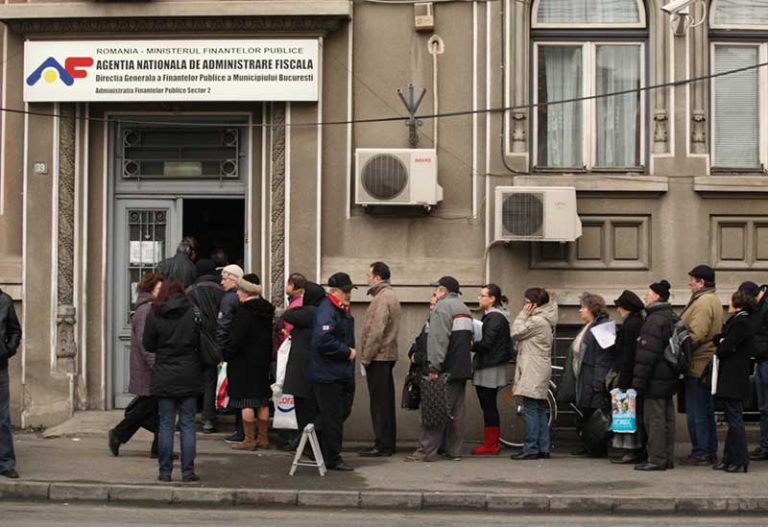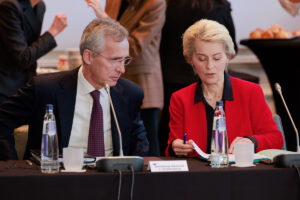 The Romanian taxpayer’s relationship with the tax administration takes place mainly in the street, not in the virtual space
The Romanian taxpayer’s relationship with the tax administration takes place mainly in the street, not in the virtual space
That is what the Minister of Finance, Mr Ionut Misa, says today, January 23, 2018: The National Agency for Fiscal Administration (ANAF) has not spent anything on the IT system following the implementation of the program in collaboration with the World Bank and all the money spent has been allocated to consulting services. The Minister of Finance’s statement was made at the hearings in the Economic Committee of the Senate.
This is not a joke: it is about USD 91 million. And in 2018, the Romanian Government already starts to reimburse the USD91 million loan contracted with the World Bank and the first instalment of 7.1% of the principal amount is to be paid in October.
In summary: we spent a quarter of the money, the ANAF’s IT system sucks and, perfectly normal, Romania starts to reimburse the loan.
And a reality: if a private company did this way with its loan, it would have gone bankrupt, and the administrator would have been arrested for pushing the firm into insolvency.
The situation, word by word, in detail:
„Unfortunately, this program has been implemented to an extent of 23.5%, which means that 23.5% of the allocated funds has been spent but no penny on the IT system. Absolutely all money, equivalent to RON 60 million, was spent on consulting services only. We had discussions with the World Bank representatives from this point of view. They have notified since 2012, every year, that no progress has been made in the IT system and we limited everything to just make analyses and consultation,” Minister Misa said.
It was not a statement on his own initiative but the answer to a question from one of the committee members who was curious to find out the state of implementation of the ANAF modernization project with the World Bank – an institution that not only constantly notified the Romanian authorities that there is something wrong with this project, but even decided to extend the program for two years, hoping that maybe Romania will do something for the computerization of the system at the European standards.
Out of the nine ministers in charge, eight were from PSD and ALDE
Who are those who, since 2012, mimicked the interest for the reorganization and efficiency? First, the heads of the fiscal administration:
- Sorin Blejnar – January 6, 2009 – April 17, 2012
- Serban Pop – April 17, 2012 – April 22, 2013
- Gelu Stefan Diaconu – April 25, 2013 – February 11, 2016
- Dragos Doros – March 2016 – January 2017
- Bogdan Stan – January 13, 2017 – July 18, 2017
- Mirela Calugareanu – July 2017 – present
Then, those who are officially chiefs of the heads of the fiscal administration – the finance ministers:
- Florin Georgescu – May 7, 2012 – December 21, 2012
- Daniel Chitoiu – December 21, 2012 – March 5, 2014
- Ioana Petrescu – March 5, 2014 – December 14, 2014
- Darius Bogdan Valcov – December 14, 2014 – March 15, 2015
- Victor Ponta – March 15, 2015 – March 30, 2015 (interim)
- Eugen Teodorovici – March 30, 2015 – November 17, 2015
- Anca Paliu Dragu – November 17, 2015 – January 4, 2017
- Viorel Stefan – January 4, 2017 – June 29, 2017
- Ionut Misa – June 2017 – present
The last on the list, Ionut Misa, explained to the committee that he tried something, though:
„We had talks with them (World Bank representatives – editor’s note) about the possibility to continue with this formula and, by agreement, we have created the National Fiscal Information Centre. They considered it is a good idea to centralize all ANAF databases and gather the whole IT system under a single umbrella.
There were 322 different databases, many of them written in different programming languages, and it was necessary to unify the whole IT system under one umbrella with a vision and strategy on the IT system for the next period, both on the hardware support, which is obsolete and ANAF made no acquisitions since 2005 from this point of view, as well as on the IT support. We want to avoid any movement of a taxpayer to any other institution that may need such information,” said Minister Ionut Misa.
The statement raises though some problems:
- this structure was established two months later than the term committed by the Romanian Government
- the most significant steps towards the unification of the databases and the computerization of the relationship between the taxpayer and the tax authority have the implementation deadline in 2020
- one of the first tasks set refers to the elaboration of a „unitary strategy for the development and maintenance of the MFP’s IT system”
Translated into common language, the last point means that everything implemented so far will be made again.
And that raises the following question: Who is held responsible for the „23.5%” share representing the money spent – more precisely borrowed from the World Bank – without any practical use?
Important mention: The World Bank – ANAF partnership project costs USD 91 million as a loan. And the loan, according to the initial contract, is to be reimbursed between 2018 and 2025.
The Romanian authorities will pay two instalments per year of 7.1% of the principal amount, starting October 2018 and the last payment will be made in April 2025, according to a contract signed in May 2013 by the Romanian Government and the World Bank officials.
***
Post Scriptum:
cursdeguvernare.ro has been monitoring all during these years the failures of the Ministry of Finance in the digitization and computerization of ANA in line with the standards of a European state and the expectations of the business environment and taxpayers.
Below, you can read the headlines of the signal articles, which failed to make any government react to this situation.









